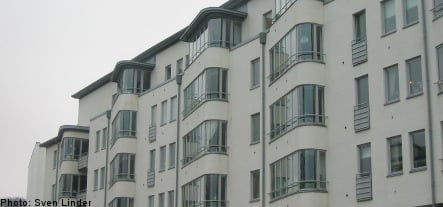During the last three months apartment prices have dropped by 3 percent across the country, reports Mäklarstatistik, an organization which monitors real estate industry trends.
But the drop has been slightly larger, 4 percent, for apartments in both greater and central Stockholm.
In central Stockholm the average price of an apartment is now 51,210 kronor ($7,538) per square metre.
Apartment prices in greater Gothenburg have dipped by 5 percent, while prices in the city centre remain stable.
Prices for apartments in both central and suburban Malmö have fallen by 3 percent.
“There is enormous uncertainly in the world right now. And I heard on the news this morning that stock exchanges in Asia had dropped an additional 6 percent. This concern is adding to Swedish households’ worries about the future,” said Peter Pütsep, head of the Svensk Fastighetsförmedling real estate agency, to the TT news agency.
Prices for houses, on the other hand, have so far proven resilient, showing a 3 percent rise overall in the last three months.
Price trends in Sweden’s three major cities echo the national pattern, with prices in Stockholm and Malmö up 3 percent, and prices in Gothenburg rising 4 percent.
Pütsep reckons that real estate values will continue to fall put doesn’t expect prices levels to crash.
He also forecasts that, as apartment prices continue to fall, price differences between different units will increase.
The reason, he says, is that well-maintained apartments in desirable locations tend to resist drops in price better than less attractive units.
He also believes a downturn for house prices is just around the corner.
“They are more slow-moving than apartments. The changes show up earlier for apartments,” said Pütsep.
The statistics are based on sales figures from 11,361 apartments, 16,782 houses, and 4,070 holiday houses between June and August 2008.




 Please whitelist us to continue reading.
Please whitelist us to continue reading.